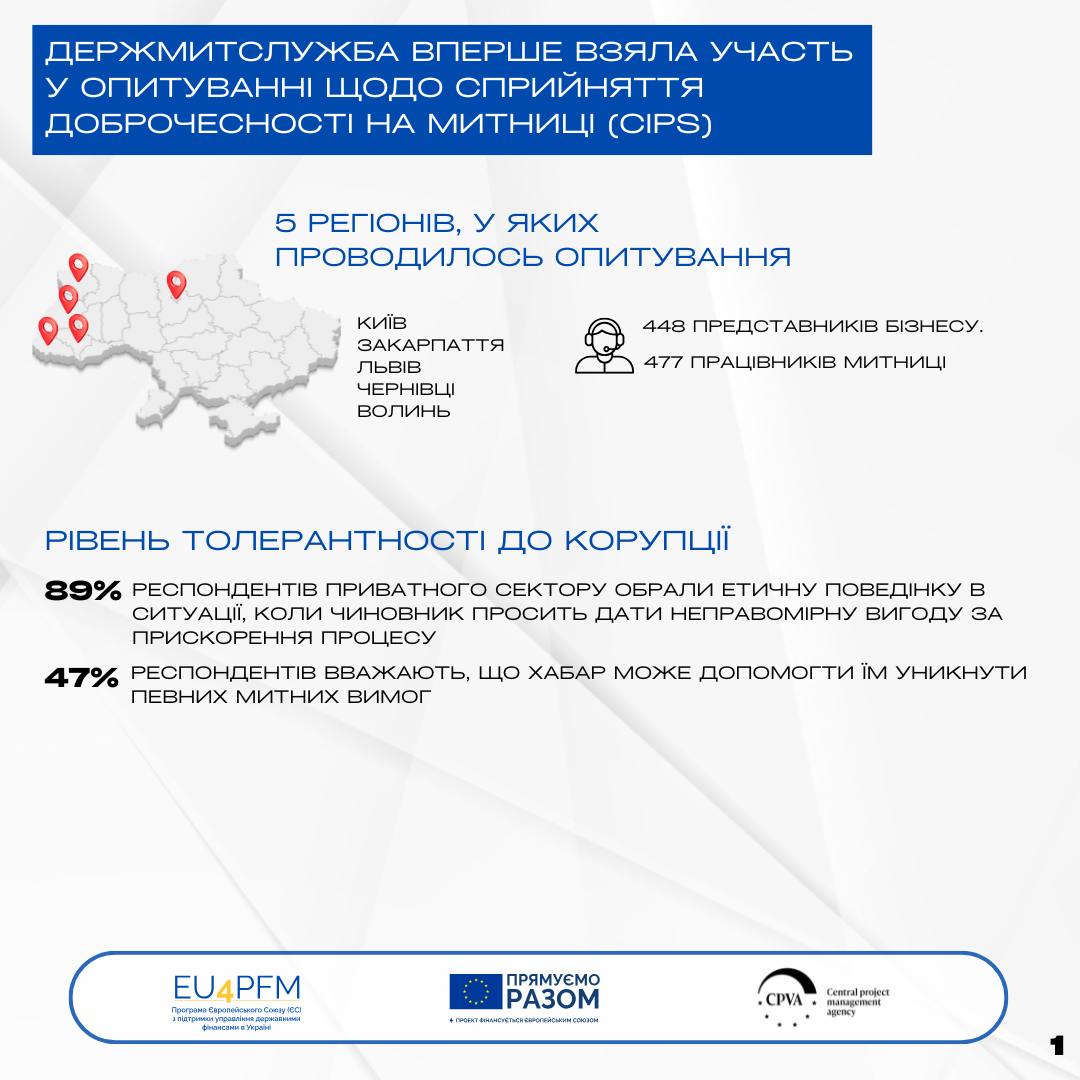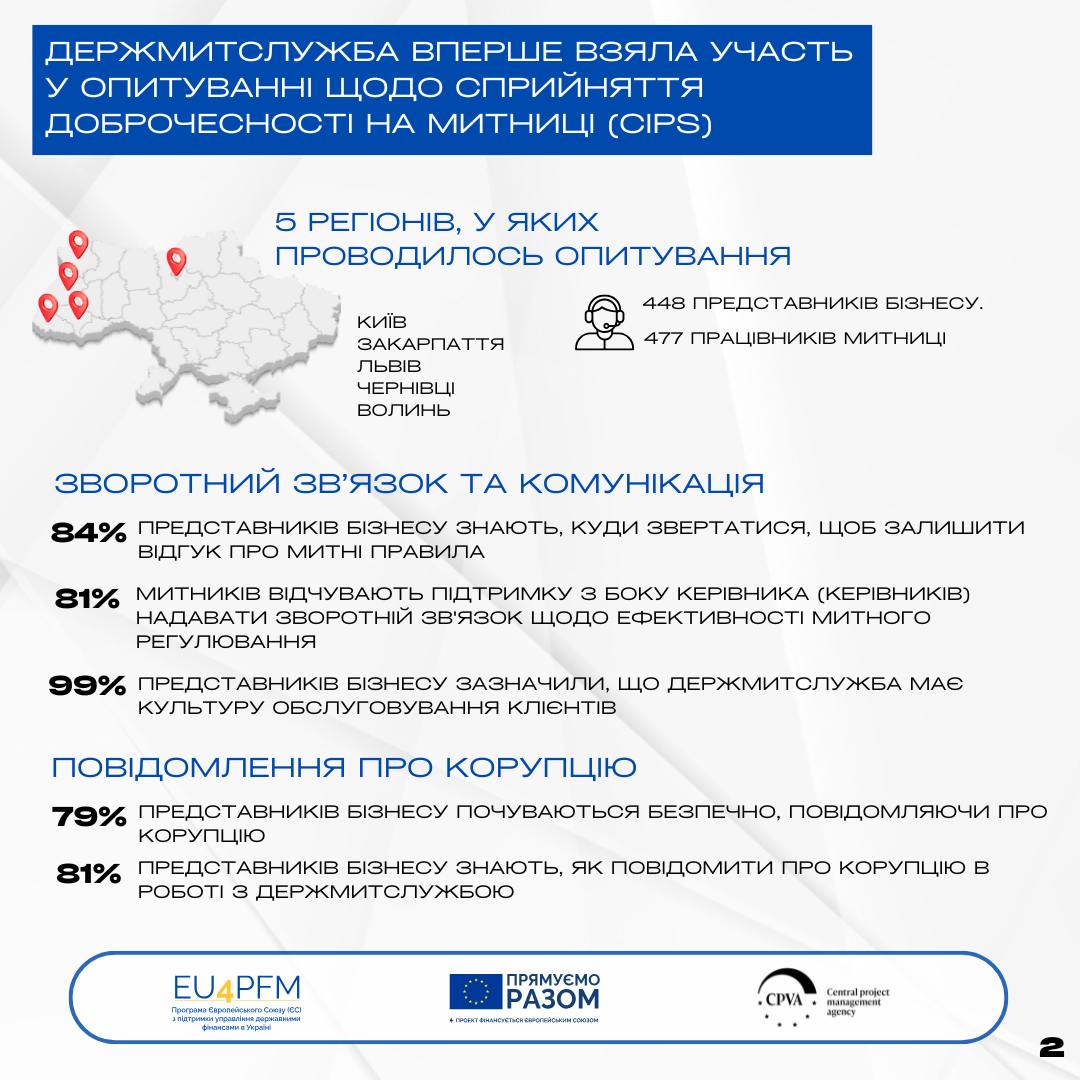The State Customs Service of Ukraine participated for the first time in the Customs Integrity Perception Survey (CIPS)
The State Customs Service of Ukraine participated for the first time in the Customs Integrity Perception Survey (CIPS), conducted in cooperation with the World Customs Organization’s (WCO) Anti-Corruption and Integrity Promotion (A-CIP) Programme. The CIPS, developed in 2019, consists of two separate surveys (one for customs officers and one for businesses). Its aim is to quantitatively assess how each group perceives the integrity of customs officials, administration, and operations.
The survey developers focus on 10 key factors that indicate perceptions of corruption levels and help identify its causes. Indicators include the complexity of legislation, tolerance for non-legal solutions (willingness to give/accept bribes), and the sense of safety when reporting corruption, among others. The survey does not provide evidence of corrupt actions but evaluates perceptions of the situation, considering both subjective and objective factors.
“As for the overall results, the survey aims to capture a broad spectrum of perceptions regarding corruption level among respondents. However, I would focus less on the numbers (whether they are good or bad, large or small) and more on the opportunities these results offer us. This is a good diagnostic tool, which we should begin using quickly. It also provides a basis for developing the necessary KPIs, which can become part of the State Customs Service’s Anti-Corruption Programme, ensuring progress is tracked and results are measurable,” said Jurgita Domeikiene, EU4PFM Team Leader.
Since the state of legislation regulating customs administrative processes is among the key factors that can create a foundation for corruption, the survey included an assessment of its effectiveness, clarity, and complexity. Responses showed that the complexity of legislation is a significant problem for the private sector, making compliance with rules difficult at times. This negatively affects the ability to do business for about two-thirds of respondents.
Two-thirds of respondents from the private sector state that they never break the rules, despite their complexity.
Nevertheless, both customs officials and the private sector believe they are capable of providing feedback on regulations. 84% of business respondents know where to go if they want to give feedback on customs rules. More than 81% of customs officers said their supervisors encourage them to provide feedback on the effectiveness of customs regulations.
A key finding is that nearly half of business respondents (47%) believe that a bribe could help them avoid certain customs requirements. However, the vast majority (89%) would choose ethical behaviour in a scenario where a customs official asks for a fee to speed up the process.
Regarding communication between the State Customs Service and businesses, SCS officials believe their “day-to-day interactions with the private sector are professional and correct” (90%). Additionally, 99% of private sector respondents say that “the SCS has a culture of customer service.”
“The SCS’s participation in this survey sends a positive message. Now, action is key. We have developed recommendations, handed them over to the SCS, and are ready to support their implementation,” noted Jurgita Domeikiene.
As previously reported by the SCS, it is currently developing a plan, with the support of the WCO A-CIP Programme, to use the survey results to engage other stakeholders and implement effective solutions to support integrity.
The survey was conducted in September 2024 in five regions of Ukraine, covering 448 customs officers and 477 business representatives. The margin of error is 4%.
Source: https://www.wcoomd.org/en/media/newsroom/2024/december/ukraine-takes-its-first-look-at-results-from-the-cips-under-the-wco-acip-programme.aspx



